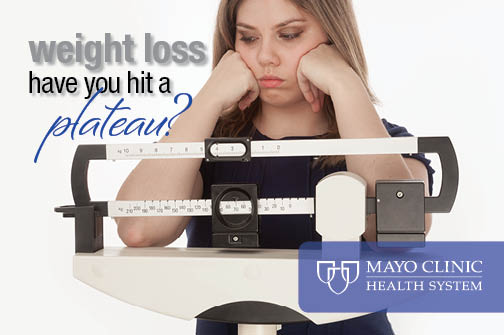Recent Posts
6 misconceptions about bariatric surgery

Bariatric surgery for weight loss is an available treatment for severe obesity that consistently achieves and maintains substantial weight loss, and improves health and quality of life. As a bariatric program behavioral health practitioner for Mayo Clinic Health System in Eau Claire, my role is to evaluate and educate patients regarding the decision to pursue surgery, and help them to prepare for surgery and the emotional, psychological and social adjustments they will face after surgery. Many patients have received feedback from concerned friends or family that surgery can fail, is the easy way out or is dangerous. Let’s review some misconceptions about bariatric surgery.
Misconception 1: People just need to eat less and exercise more.
Obesity is no longer considered an issue caused by overeating and a lack of self-control, but a complex condition resulting from multiple genetic, biologic, metabolic, behavioral, social, economic and cultural factors. Despite the science, findings from a nationally representative survey of 1,509 adults from the University of Chicago, funded by the American Society for Metabolic and Bariatric Surgery, shows a majority of people, including many medical professionals, continue to view obese people as lazy and lacking in willpower.
When people lose weight through dieting alone, the body compensates through biological changes, including increased appetite and slower metabolism. Unfortunately, these biological changes often persist long term, which explains why people often regain weight even beyond their starting point.
Research of individuals who achieved significant weight loss while participating in a popular TV series was consistent with these findings: 90 percent of those who participated not only regained the weight, but their metabolisms had altered to burn fewer calories. I advise my patients that people don’t fail at diets; diets fail people. Unfortunately, the diet industry is a $66 billion-a-year industry that continues to promise results to the detriment of peoples’ emotional and physical health.
Misconception 2: Bariatric surgery is dangerous.
While any surgery poses certain risks, the risk of death from surgery is considerably less for bariatric patients than for individuals affected by severe obesity who have not had the surgery. In fact, the data show up to an 89 percent reduction in mortality, as well as highly significant decreases in mortality rates due to specific diseases, including cancer, diabetes and heart disease. After bariatric surgery, you may be able to decrease or discontinue medications for chronic conditions, such as diabetes, heart disease or high blood pressure.
Misconception 3: Bariatric surgery will make me thin.
Expected weight loss varies with the type of surgery, and your starting weight, age, gender, physical activity and medical condition. You typically will lose 30–65 percent of excess body weight, but making long-term changes in your diet and exercise routine can exceed that average. Our bariatric team views your success in terms of improved health, lifestyle changes, mobility and quality of life. If you or family and friends view success as an ideal weight or clothing size, this may not be a realistic expectation. You may end up with a body mass index that continues to be in the overweight range and still be a success based on where your journey started. Most weight loss occurs in the first year after surgery, and it is common for you to regain a small portion of your weight before stabilizing. However, it is possible for patients to gain their weight back after surgery if they do not continue with healthy eating habits and regular exercise.
Misconception 4: Bariatric surgery and weight loss will make me happy and improve my relationships.
While weight loss does provide the opportunity to have a higher quality of life, it is not a magic wand for happiness or resolving personal issues. Also, lifestyle changes with bariatric surgery can put stress on relationships if changes are not supported by friends and family. These issues are discussed throughout the process, and family involvement is encouraged.
Misconception 5: Bariatric surgery will keep me from overeating.
Temporarily, bariatric surgery can create changes in brain biochemistry to reduce cravings for sugar and make eating sweets less rewarding after surgery. This does not happen for everyone, however, and bariatric surgery will not cure binge eating, bulimia or compulsive/emotional overeating disorders. Eating disorders are assessed prior to entry into the program and, at times, can be treated while preparing for surgery. If food has become a coping mechanism, you will need to adopt healthier ways of coping before surgery, or you will be at risk of resuming unhealthy behaviors and regaining weight or developing issues with depression or anxiety.
Misconception 6: Bariatric surgery is the easy way out.
As a patient once stated, “Anyone who thinks this is the easy way out should understand what we go through.” If you are considering this procedure, preparation is often around four to six months. You are required to have multiple assessments and appointments with doctors, a dietician and exercise physiologist. In addition, I see patients for an initial evaluation, 10 group sessions and additional individual sessions as needed.
After surgery, it is important you follow a daily regimented schedule with food and fluid intake, continue with exercise and other lifestyle changes, and continue receiving outside support. Most patients state what they regret most is not having this procedure sooner. It is rewarding to hear patients report they have increased energy to interact with their children and grandchildren, confidence to engage in social activities, the ability to buy clothes in a regular store, and that they no longer feeling dread or panic every time they go somewhere that there may not be a chair they fit in or that someone will make a cruel remark.
Bariatric surgery, along with commitment to lifestyle change, not only provides long-term weight loss, but it significantly improves health and quality of life for many.
If you have been considering bariatric surgery, call your primary care provider to schedule an appointment to discuss this option.
By Mayo Clinic Health System staff





